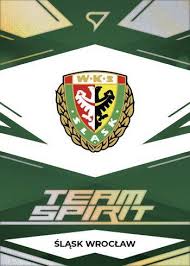Exploring Ekstraklasa: The Heart of Polish Football

Introduction
Ekstraklasa, Poland’s top football league, stands as a crucial element of the nation’s sporting culture, captivating fans and players alike since its inception. Established in 1927, the league is not only a platform for showcasing talent but also a vital part of Poland’s social fabric, drawing significant national and international attention. With the recent increase in quality and competitiveness, Ekstraklasa continues to gain recognition, influencing the trajectory of football in the country.
Current Season Overview
The 2023 season of Ekstraklasa has been marked by intense competition and thrilling matches. As of October 2023, the league features 18 teams vying for the championship, with clubs such as Legia Warsaw, Lech Poznań, and Piast Gliwice demonstrating remarkable performance. The current leader, Lech Poznań, has showcased impressive skill, with several key players contributing to their success on the field.
The league’s format includes a regular season where all teams compete against each other, followed by the split into two groups to determine the champion and relegation outcomes. This format not only heightens the stakes but also keeps fans engaged throughout the season.
Impact of Economic Factors
The financial health of clubs in Ekstraklasa has seen noticeable changes recently, with increasing investment from sponsors and television rights deals. As per industry reports, the revenue generated from broadcasting rights has increased by 15% in the last year alone, allowing clubs to invest in better facilities, training, and player acquisitions. This financial upswing has a direct impact on the quality of play within the league, making it more captivating for fans.
Future of Ekstraklasa
Looking ahead, the future of Ekstraklasa appears to be promising. With ongoing investments and a commitment to youth development, Polish football is positioning itself on the European stage. The league has potential to serve as a stepping stone for players aiming for international careers. Furthermore, the increasing involvement of global scouts in the league indicates a growing interest that could lead to heightened competition and visibility for Polish football.
Conclusion
In conclusion, Ekstraklasa not only reflects the sporting prowess of Poland but also embodies the aspirations and dreams of its supporters. As the league continues to evolve, it remains an integral part of Poland’s identity, fostering a passionate community and paving the way for future talent. For both local fans and international football observers, the developments within Ekstraklasa promise to remain an exciting narrative in the world of sports.









